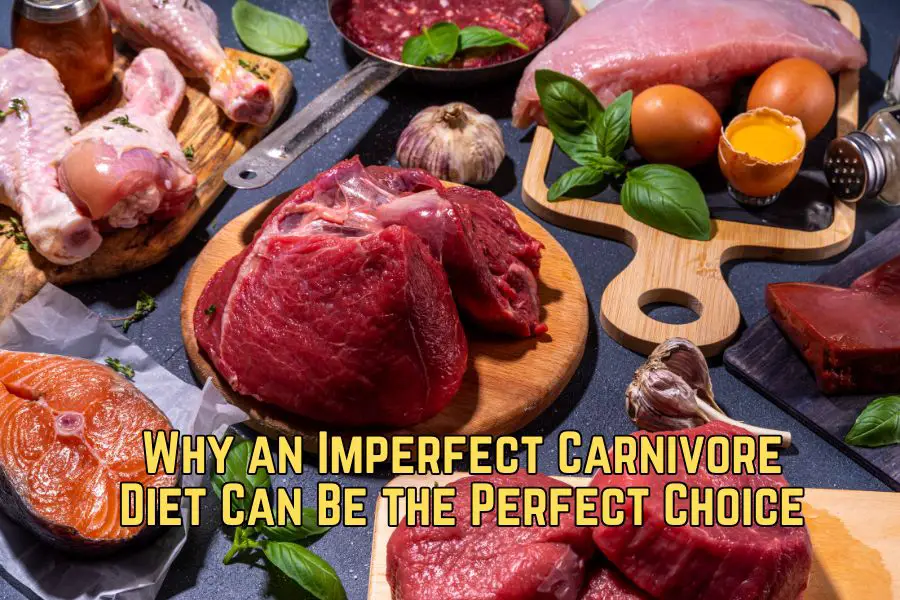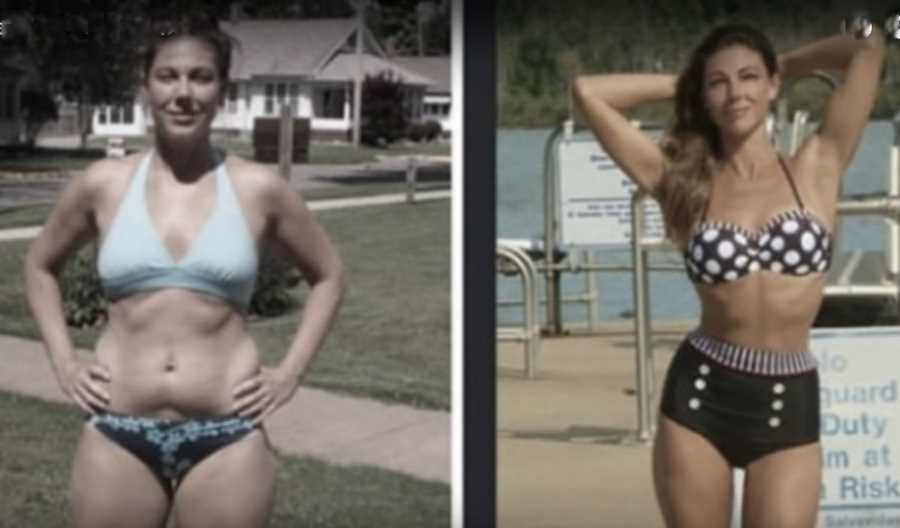Nicknamed the “Carnivore King”, Dr. Shawn Baker is an orthopedic surgeon, a lifelong athlete, and an active advocate of the carnivore diet. He is also the author of the bestselling book The Carnivore Diet.
In this post, we will look at Dr. Baker’s background, how he discovered the carnivore diet, what he eats in a day, his recommendations for people wanting to start the carnivore diet, and his current involvement in the carnivore diet movement.
Shawn Baker’s background
Childhood
Growing up in the 1970s, Shawn Baker’s diet as a kid was the typical cereal breakfast, sandwich lunch, and meat, starch, and vegetables for dinners, and of course plenty of sugary desserts. In his teen years, he started weightlifting and tried to eat more healthily. He focused on eating low-fat but was oblivious to the danger of sugar. He later added protein powder and supplements believing they’d help with his athletic performance.
University and rugby
Shawn Baker went to the University of Texas, graduated with a biology degree, and was accepted to medical school. However, while in medical school, he became interested in rugby, played extensively at professional levels, and eventually dropped out to play rugby in New Zealand.
Air force, medical school and war zone deployment
Upon his return from the New Zealand stint, Baker joined the United States Air Force and later returned to medical school and graduated with a doctor of medicine in 2001. He then completed 5 years of the orthopedic surgical residency program at the University of Texas and became an orthopedic surgeon.
Baker worked in the Air Force for a number of years as a trauma surgeon and also spent 6 months in Afghanistan. After retiring from the Air Force, he joined a private practice and led a busy and successful orthopedic group.
Declining health and the search for a better diet
When he was in his mid-forties, Baker realized that his health was not ideal. Despite still training a lot, he was developing metabolic syndromes. He was a bit overweight, suffering from sleep apnea, and experiencing aches and pains. His blood pressure also began to rise. He realized that exercise was not enough to stay healthy and began changing his diet.
Ultimately, Baker ended up with the ketogenic diet and became an advocate of this diet after experiencing significant health improvements with this diet himself.
Putting patients first and consequences
When Baker actively recommended the ketogenic diet to his patients and wanted to shift the focus of his orthopedic practice from surgery to resolving patients’ health problems with a healthier diet and lifestyle, he was not supported by the hospital he worked for.
Baker realized that he could help his patients get better without surgery and having to amputate parts of their bodies. Instead of spending the usual 8-minute consultation, he was spending forty minutes talking to his patients about diet and lifestyle. As a result, he was slowing his clinic down, doing fewer operations, and making it less profitable.
According to Baker, he was suspended after a biased review initiated by the hospital board. However, he was fully reinstated after being reviewed by an independent agency in 2019 and got his medical license back after a few stressful years.
Shawn Baker’s discovery of the carnivore diet
While battling to get his medical license back, Baker continued his research on nutrition and lifestyle and in 2016 became interested in the carnivore diet. He was puzzled by the fact that people were doing exceptionally well on this meat-only diet.
He began to experiment with this diet by having occasional carnivore days when he only ate eggs, bacon, seafood, steaks, and hamburgers. He felt much better on those days than on days he ate normal foods. He began to have more carnivore days and decided to do a 30-day carnivore challenge in late 2016.
Baker completed the challenge without any problem and felt much better on the diet and kept going. One month turned into two months. Two months then turned into six months and he has stuck with the diet ever since.
Because Baker was active on social media documenting his experience with the carnivore diet, he began attracting attention from many people and was soon being asked to be a guest on podcasts and in interviews.
His appearance on a Joe Rogan podcast, which is one of the most influential and most-watched podcasts on the web, has undoubtedly exposed the carnivore diet to millions of people.
According to Baker, the carnivore diet has led to better body composition and improvements in sleep quality, strength, and athletic performance. He was able to break three world records in rowing since going carnivore.
What Shawn Baker eats on the carnivore diet
Baker said he usually eats twice a day. For breakfast, he would have steaks most of the time or some eggs or salmon. For the second meal in the early evening, if he doesn’t have steak, eggs, or salmon, he’d have some cheese or full-fat Greek yogurt. He does not take any vitamin or mineral supplements.
Baker said his diet is 95% meat and the rest is eggs, seafood, and dairy (cheese and yogurt).
Baker’s carnivore diet approach is non-dogmatic and pretty relaxing, he doesn’t emphasize nose-to-tail like Dr. Paul Saladino and recommends people to eat any food that comes from an animal that they feel good with.
Below are some of his recommendations for people wanting to start the carnivore diet.
1. What should you eat on the carnivore diet?
As long as a food comes from an animal, you can eat it, such as beef, lamb, chicken, turkey, deer, bison, fish, shellfish, pork, caribou, etc.
With regard to eggs and dairy, it’s fine to add them if you tolerate them.
For cooking oil, Baker recommends sticking with animal fats such as butter, ghee, lard, tallow, suet, duck fat, etc. Avoid coconut oil, MCT oil, avocado oil, and olive oil. Although these oils are better than industrial seed oils, they still can be problematic for some people. For example, salicylates in coconut oil can cause rash, digestive upset, headaches or swelling in some people.
Baker’s view is that spices and seasonings are fine, especially for people who are transitioning to the carnivore diet.
Baker suggests avoiding sauces that are laden with sugar, vegetable oils, soy, gluten, MSG, and other troublesome additives.
2. What should you drink on the carnivore diet?
Baker’s view is that, like all other animals on the planet, all you need to drink is water. Bone broth is fine because it has some good stuff but it isn’t crucial to the success of the carnivore diet.
Baker suggests limiting alcohol because ethanol is toxic. He only has a glass of red wine or two once in a while and would expect his sleep to be affected and his athletic performance to be impaired the next day. He finds that most long-term carnivores report less desire to drink alcohol.
He also suggests limiting coffee and tea because of the negative impacts of caffeine on sleep, gastrointestinal motility, and gastric acid secretion. If you would like to quit coffee or caffeine, Baker suggests that try after you’ve adapted to the carnivore diet.
3. How often should you eat?
Baker says at the beginning, let your body decides and eat as often as you would like. Later on, you will find a regular routine that meets your body’s needs.
As mentioned above, Baker generally eats only twice a day despite being very physically active.
4. What does a meal plan look like?
| Day | Meal 1 | Meal 2 | Snacks |
|---|---|---|---|
| 1 | Eggs and bacon | New York strip steak | Homemade jerky |
| 2 | Salmon | Rib-eye steak | Hard-boiled eggs |
| 3 | Hamburger patties with cheese | Chicken thighs | Pork rinds |
| 4 | T-bone steak and eggs | Lamb chops | Pemmican |
| 5 | Brisket | Liver | Cheese |
| 6 | Sardines and burger patties | Pork shoulder | Leftover steak |
| 7 | Rib-eye steak | Rib-eye steak | Bacon |
Shawn Baker’s current involvement with the carnivore diet movement
Dr. Baker has inspired many people to start the carnivore diet. He has thousands if not millions of followers. On his website, you can find hundreds of testimonials from people whose health and life have been significantly improved by the carnivore diet.
Baker is still actively promoting the carnivore diet. He is now the CEO of Revero which focuses on helping people who want to transition to the carnivore diet to improve their health. For $15/month or $156/year, you can access a range of services such as VIP live meetings, social community meetings, member discounts, forum and knowledge center, workouts and monthly challenges, etc.
Baker is also raising funds to conduct the first-ever large-scale carnivore diet clinical trial. With peer-reviewed clinical data, he hopes to change the current understanding of nutrition and how chronic diseases are managed.
If you are curious about the carnivore diet and what it can do for your health, you can certainly follow Dr. Baker’s tentative approach, having some carnivore days and some normal food days and see how you feel.
If you feel good on carnivore days, you can proceed to a 30-day challenge and, based on this experience, decide if you want to commit to it long-term.
If you would like to start the carnivore diet even just for a short period of time, please check out this step-by-step guide that I’ve written for people who are new to this diet. Also, check out my library of articles on the carnivore diet which is updated regularly.
No one can decide what is right for you; you must come to that decision on your own.
My only recommendation is you objectively assess what is important to you. Base your decisions on your needs rather than what your family, friends, doctor or society as a whole wants for you.
You’re the one who has to walk around and sleep in the only body you will ever own. How you choose to live and take care of that body is up to you.
Shawn Baker, MD
References
The Carnivore Diet – Shawn Baker, MD
SHAWN BAKER – THE CARNIVORE DIET: How To Get Mentally & Physically Stronger By Eating Meat
Carnivore Diet- My Medical License Restored
Shawn Baker: heavyweight medicine man in praise of meat
Dr. Shawn Baker’s Carnivore Diet Plan, Benefits & Results
Disclaimer: The information in this post is for reference purposes only and not intended to constitute or replace professional medical advice. Please consult a qualified medical professional before making any changes to your diet or lifestyle.





